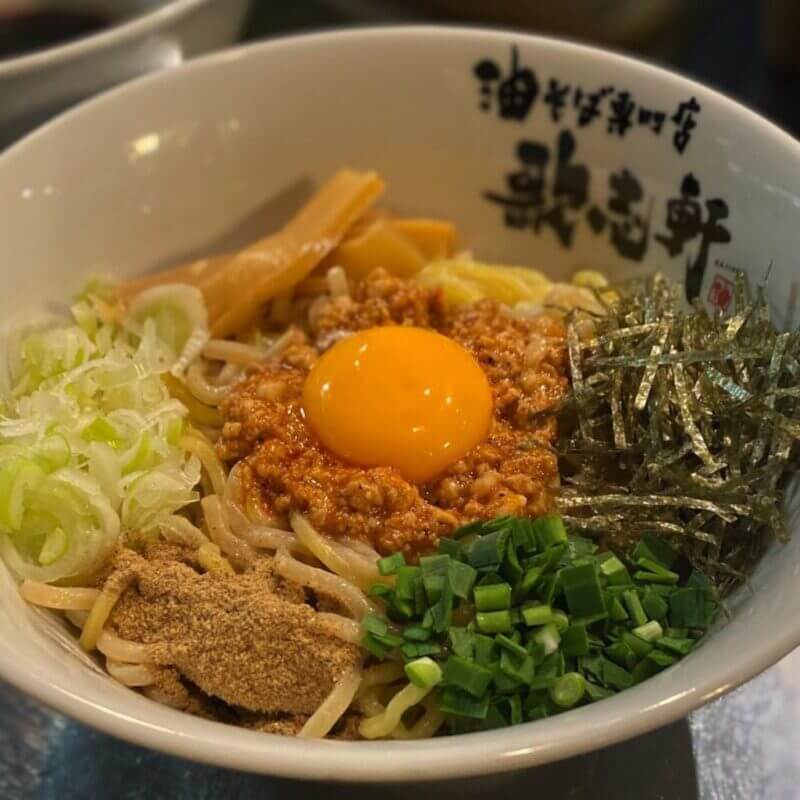Learning Multiple Languages and How it Led to a New Chapter | Tim's Story
How Learning Japanese in Tokyo Led to Opening a Ramen Restaurant in San Francisco

How much of an impact can language learning have?
To answer that question, today we’ll be getting to know Tim, who currently speaks four languages and is learning a fifth.
After growing up bilingual on the west coast of the US, Tim embarked on a language journey that took him halfway around the world and back again.
Here’s the story of how languages shaped his life.
Hi Tim! First things first: how many languages can you speak and to what level?

Hello! My name is Tim, you may call me Tim.
I’m a first generation ABC (American-born Chinese).
My parents emigrated from Guangzhou and I grew up speaking English and Cantonese, so I am fairly fluent in both (or I like to tell myself that).
At university I double minored in Chinese and Japanese and I studied abroad for 1 year at Peking University and 1 year at Waseda University.
I like to describe my Mandarin and Japanese as “good enough to hold a full conversation between friends without too many hiccups”.
Which language did you find the most difficult to learn?
None in particular!
Because they all have similarities – like Japanese uses Chinese characters. The grammar structure of Chinese and English are the same as well.
Though admittedly I do struggle with Japanese grammar a little bit, because English, Mandarin and Cantonese are subject-verb-object, whereas Japanese is subject-object-verb.
Check out our Japanese Grammar Bank and Chinese Grammar Bank for lots of free language resources!


In what order did you learn those languages and do you think that had an impact on your ability to learn them?
This is a great question because I definitely believe the order in which I learned these languages had an impact.
My mother tongue is Cantonese (although many consider it English) because in actuality, I spoke only Cantonese for the first 6 years of my life.

It wasn’t until I went to elementary school that I had to start speaking English. It was actually quite a struggle because I didn’t speak English at home.
For Japanese, I fell in love with anime at a young age.
I watched a lot of anime, Japanese dramas, and listened to Japanese music.
I just lived, breathed, and consumed Japanese content on a daily basis.
Luckily, my university had a Japanese program so I chose Japanese as my second language. Funnily enough, the reason I majored in International Business was because it was a requirement to study abroad.
Before I move onto Mandarin, I want to tell a funny story.
When I was a kid, every Saturday morning, I had to take Mandarin lessons against my will. You need to understand, when I was a young Padawan, all I wanted to do was watch Saturday morning cartoons or sleep in.
After my 3rd year, I had a HUGE fit and my parents gave in to my demands. Thus, my Saturday mornings opened up and honestly, I regretted doing that to this day.


But that was the catalyst for my study abroad program in Beijing later on in life.
I am pretty good conversationally because there are a lot of similarities between Cantonese and Mandarin.
In addition, I learned a lot of Kanji which translated well from Japanese. Not to mention living in Beijing for 1 year really accelerated my ability to learn Mandarin. Environment is really important.
When you have no choice but to speak and listen to Mandarin every time you need to make conversation, you will naturally improve at a fast pace.
I’m very jealous that you studied Japanese in Japan! What was your experience like?
It is never too late! Anyone can do it if you put your mind to it, I truly believe that.
It was a 1-year study program at Waseda University through the California State University program. Japanese universities are notorious for being hard to get in, but once you’re in, it is smooth sailing.

I joined a dance circle called Waseda International Festival (WIF), whose mission was “to connect and make friends through learning another culture’s traditional dances”.
We’d have weekly rehearsals and do a final big performance at the end of the semester.
Our dance rehearsals typically end around dinner time, so I’d be the one taking charge of inviting people to dinner, and a few members became regulars who would always say yes.
These friends ended up being some of my closest friends and are very precious to me.
Feeling hungry? Take a look at LTL’s Guide to Japanese Food!
If you calculate the length of time these friends and I have physically been together in one location, it was only a year.
It’s been over a decade since and many of them have come to San Francisco to visit, travel, and study. These friendships and experiences have changed my life!
Back to dinner after rehearsals, our default go-to crowd favorite food was this soupless ramen dish called ABURASOBA.
This experience completely altered my life in a huge positive way.
I have since dedicated my life to opening an ABURASOBA restaurant in my hometown and this is a food that is very dear to me. I want to share it with the world!

To check out Tim’s upcoming restaurant, head over to the Kajiken website or the Kajiken USA Instagram!
Wow, that’s exciting news about the restaurant! Can you tell us a little more about it?
Without a doubt, my study abroad in Japan changed my life.
That experience led me down the path to opening my own ABURASOBA restaurant.
I can’t wait to finally share this delicious food to my friends and family here in San Francisco.
It also solves my own problem of needing to buy a flight ticket to eat ABURASOBA. Now I can just make it myself!


So, how does studying in Tokyo compare to studying in Beijing?
Tokyo > Beijing. No contest.
Let’s skip this question because otherwise I’ll be trash-talking Beijing!
Moving on! Is there anything you wish someone had told you before you moved to China and Japan?
Nope! I simply went because I wanted to. And nothing will get in my way when I put my mind to it. So nothing anyone told me would change anything.
I do want to encourage anyone to just do what their heart tells them to because they will find it very fulfilling.

A Bite of China 舌尖上的中国 🏆 Best Chinese Food Show Ever!
A Bite of China Review – In Chinese it’s called 舌尖上的中国 (shéjiān shàng de zhōngguó). This literally means “China on the tip of the tongue”.
What drives you to learn languages – is your motivation different for each one?
For Japanese, the simple answer is I’m a Weeb.
As for Mandarin I did not want to be one of those stereotypical ABC who can’t speak, read or write Chinese.
I wanted to learn about my ancestry and heritage. So I made the effort to do a second study abroad in Beijing.
In addition, knowing Mandarin is a big big plus on your resume. There is no denying China is a super strong country.

To add another layer to that, I have always found it easier to make friends by speaking with them in their original mother tongue.
I feel an instant sense of comradery meeting someone who can speak Mandarin, Cantonese, and Japanese.
And to me, there is no higher high and joy than making new friends.
How important do you think it is to learn about culture when learning a language? Can the two be separated?
The two can be separate. One can definitely learn the language but not learn the culture.
But it will greatly diminish your appreciation for both. Learning both in conjunction is much more beautiful and holistic, in my personal opinion.
(we couldn’t agree more by the way!)
How do you keep your language skills sharp?

For speaking: daily consistent practice.
I try to video chat with friends that speak Japanese and Mandarin as much as I can and speak Japanese and Mandarin with guests at work.
For listening: content absorption.
Watch a variety TV shows or dramas where people are speaking naturally.
Improve your listening and speaking through hearing natives speak on a daily basis.
And as for reading and typing: text your friends. Ask them to correct you.

28 Chinese TV Shows on Netflix 📺 A Monumental Guide
Chinese TV Shows on Netflix – Discover the best action, comedy, drama and more with this complete guide to Chinese TV shows on Netflix
What tips would you give to someone who is just starting out on their language learning journey, or finding the process difficult?
Do the things above on a daily basis, and also google “top 500 commonly used words in xxxx language” and use Anki to study those 500 words.
BONUS | we have created a whole load of Anki decks so you don’t have to. Check out the link below.

Anki Decks // Download These Freebies (Mandarin, Japanese, Korean, Russian & More)
Free Anki Decks to Download // Want to improve your Mandarin with flashcards? We’ve got just the trick with these FREE to use Anki Decks for Chinese learners.
Which language do you think you’d have the best chance of winning an argument in?
Not sure, but I am sure that every Cantonese speaker will agree with me that angry Cantonese is the best Cantonese.
Cantonese is very crude and really flows well when you’re angry and swearing at each other!
Some of the Cantonese slang and bad words are borderline genius levels of ingenuity. Just watch some Stephen Chow movies in original Cantonese and you’ll understand!
Finally – are you planning on learning any more languages in the future?
I’m in the process of learning Korean!
I love BTS and Korean culture. I’m a weeb and a koreaboo. Woreaboo? Kweeb?
How have languages had an impact on your life? We’d love to hear about even more experiences down in the comments section!
FREQUENTLY ASKED QUESTIONS
Where can I learn Japanese online?
You can learn Japanese online through LTL’s Flexi Class platform.
You can book, cancel and re-book classes whenever you want and have complete freedom to study Japanese online.
Plus… we currently have a 7 day free trial available!
Where can I learn Mandarin and Cantonese online?
You can also learn Mandarin and Cantonese online through LTL’s Flexi Class platform.
But why stop there, we also offer Korean, Vietnamese, Shanghainese and Taiwanese!
Plus… we currently have a 7 day free trial available!
Where can I connect with other language learners online?
Join our LTL Discord Server, where you can connect with other language learners, access free materials and practice chatting in your target language!
Want more from LTL?
We offer a 7 day free trial to all new students where you can study Mandarin 24/7. Come and check it out free of charge and see what you think.
We also offer immersive Chinese courses in China. You can learn more about those here.
Sign up below and become part of our ever-growing community.










6 comments
wow this guy is really cool!
Isn't he just, Tim!
So when can I have my ramen?
The question on everyone's lips!
I had the Spicy minced pork Aburasoba last week! It was fantastic!! Well worth the wait. 美味しい.
I would highly recommend Kajiken to anyone who visits SF Bay Area.
Oooft great call there Ben!